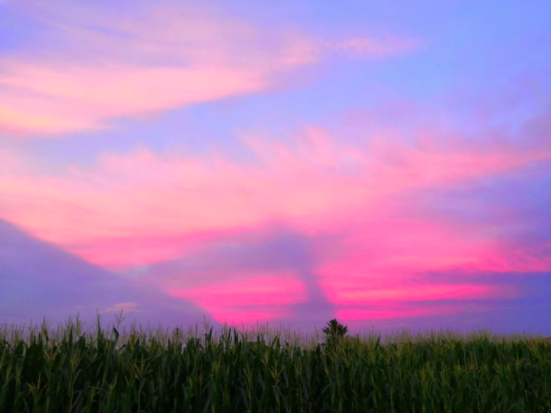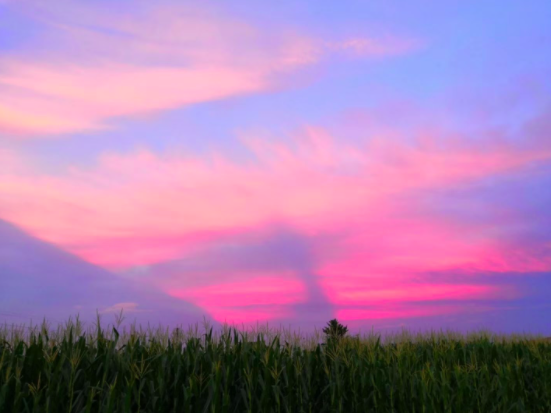By William Li || Contributing Writer

After an exhausting afternoon packing up and moving downstairs from Ware College House in May, I arrived at a little wooden farmhouse in the middle of vast Amish cornfields, approximately half an hour east of campus in a town surprisingly called Paradise. Half relieved, half worried, I unloaded my luggage and went straight to bed for a good rest, not expecting at all that this would be where I’d cook, study, go fishing, and birding for more than 7 months: a good portion of my sophomore academic year.
The shutdown has definitely interrupted everyone’s travel plans as well as mine; I decided not to return to my home country during these uncertain times, and so began my quiet, rather solitary, yet memorable summer break—cooking 3 meals a day, mowing the lawn, cutting down dead trees, cleaning the attic …… all by myself. As an intended animal behavior major, my passion for nature and wildlife is with me wherever I go, and I feel so blessed to be able to spend this period of quarantine in a place with such easy and safe access to nature. Within weeks, I’ve had a good idea of all my little neighbors: a robin and her nest on my window sill, a fluffy groundhog underneath my porch, and countless birds, invertebrates, and small mammals in the fields.
As I explored further, streams and ponds between farmlands caught my attention, and I decided to try fishing, something I’ve never put my mind to. My classmate (who knows how to fish and comes to visit from time to time) and I learned the regulations, got licenses, and began another wonderful journey: fishing from the first greyish-blue sheen of daylight till the starry summer night with the song of bullfrogs and dance of fireflies. And the best of all is that few would be visiting Amish fields and farmlands, let alone fishing a secret little stream in the middle of nowhere. This outdoor activity is completely “quarantine safe.” We came to interesting understandings of aquatic insects, life cycles by the water, and various native fish species, all of which fascinated us and called us to learn more, observe more.
Another huge part of the online semester was connecting with my professors and sharing my experiences of nature, particularly with Professor Kent (also Don of Ware College House). Exchanging our findings, identifying animals and birds and their interesting behaviors through emails or during virtual Ware College House office hours since the summer has been a major highlight. Not only does this wonderful relationship give me a strong sense of being in the campus community, but it also allows me to share my findings with someone who is passionate about the same things. Through all the emails, photos, and experiences (his fascinating wildlife stories of things seen in Landis Woods, northeast of Lancaster, and mine in the peaceful streams and farmlands of Paradise), something unexpected emerged that has been wonderful: a shared, ongoing journey of exploration.
Of course, with the start of virtual summer school followed by the module system, running wild in the fields all day or fishing by the bank all night was no longer an option. But I still get to have a relaxing afternoon with a rod and bucket by the water from time to time or a twenty-minute walk enjoying birds and crops. Overall, I see the year 2020 as an opportunity, allowing me to try new things, overcome new challenges, and still be able to continue learning and to do what I love.
Potential photos down below
Delinger Pond, Paradise
Chambers Lake, West Caln Township
Luna moth, Delinger Pond, Paradise
Mirror Carp, Graffa Pond, Lancaster
Afterglow in cornfield, paradise
Queensnake, Chambers Lake, West Caln Township
Cornfield in summer, Paradise
Cornfield in Winter, Paradise
Robin nest, Paradise
Delinger Pond, Paradise
Northern Red Salamander, Paradise
Fishing, Conestoga River
Brown Trout, Eshleman Run, Paradise
Bald Eagle Nest, Eshleman Run, Paradise
Deer Trail in Snow, Landis Woods
Yellow-Jacket’s Nest Disturbed by a Skunk, Vacant Field, Manheim Township
Eastern Box Turtle, Landis Woods
Sophomore William Li is a Contributing Writer, his email is wli@fandm.edu.
